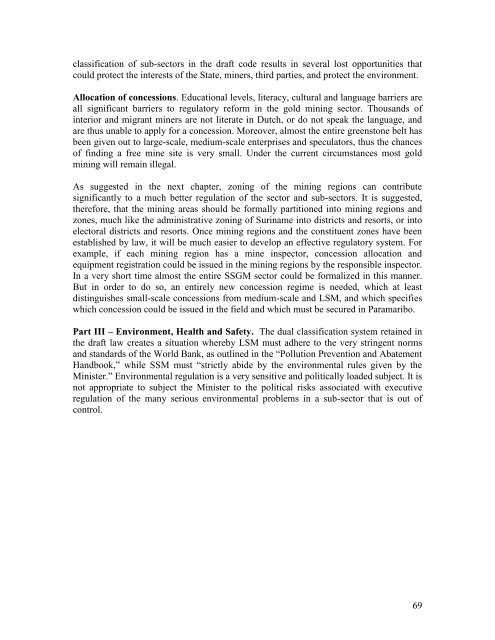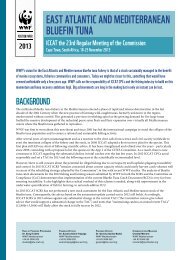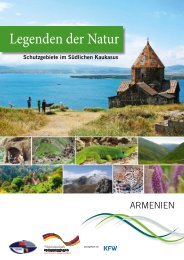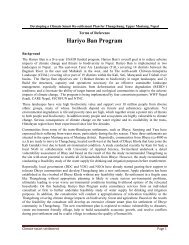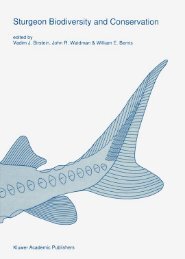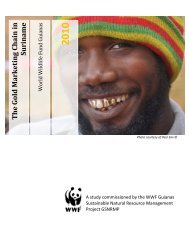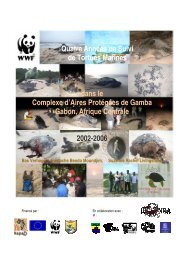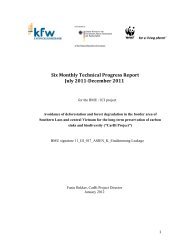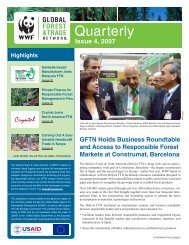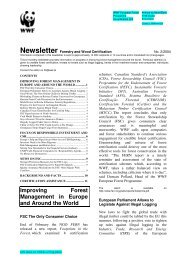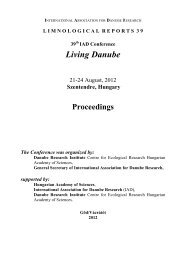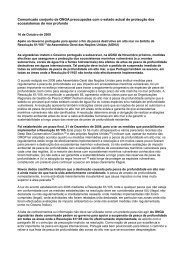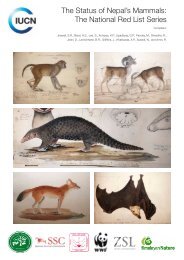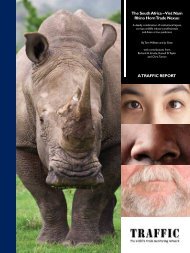SITUATION ANALYSIS OF THE SMALL-SCALE GOLD ... - WWF
SITUATION ANALYSIS OF THE SMALL-SCALE GOLD ... - WWF
SITUATION ANALYSIS OF THE SMALL-SCALE GOLD ... - WWF
You also want an ePaper? Increase the reach of your titles
YUMPU automatically turns print PDFs into web optimized ePapers that Google loves.
classification of sub-sectors in the draft code results in several lost opportunities that<br />
could protect the interests of the State, miners, third parties, and protect the environment.<br />
Allocation of concessions. Educational levels, literacy, cultural and language barriers are<br />
all significant barriers to regulatory reform in the gold mining sector. Thousands of<br />
interior and migrant miners are not literate in Dutch, or do not speak the language, and<br />
are thus unable to apply for a concession. Moreover, almost the entire greenstone belt has<br />
been given out to large-scale, medium-scale enterprises and speculators, thus the chances<br />
of finding a free mine site is very small. Under the current circumstances most gold<br />
mining will remain illegal.<br />
As suggested in the next chapter, zoning of the mining regions can contribute<br />
significantly to a much better regulation of the sector and sub-sectors. It is suggested,<br />
therefore, that the mining areas should be formally partitioned into mining regions and<br />
zones, much like the administrative zoning of Suriname into districts and resorts, or into<br />
electoral districts and resorts. Once mining regions and the constituent zones have been<br />
established by law, it will be much easier to develop an effective regulatory system. For<br />
example, if each mining region has a mine inspector, concession allocation and<br />
equipment registration could be issued in the mining regions by the responsible inspector.<br />
In a very short time almost the entire SSGM sector could be formalized in this manner.<br />
But in order to do so, an entirely new concession regime is needed, which at least<br />
distinguishes small-scale concessions from medium-scale and LSM, and which specifies<br />
which concession could be issued in the field and which must be secured in Paramaribo.<br />
Part III – Environment, Health and Safety. The dual classification system retained in<br />
the draft law creates a situation whereby LSM must adhere to the very stringent norms<br />
and standards of the World Bank, as outlined in the “Pollution Prevention and Abatement<br />
Handbook,” while SSM must “strictly abide by the environmental rules given by the<br />
Minister.” Environmental regulation is a very sensitive and politically loaded subject. It is<br />
not appropriate to subject the Minister to the political risks associated with executive<br />
regulation of the many serious environmental problems in a sub-sector that is out of<br />
control.<br />
69


